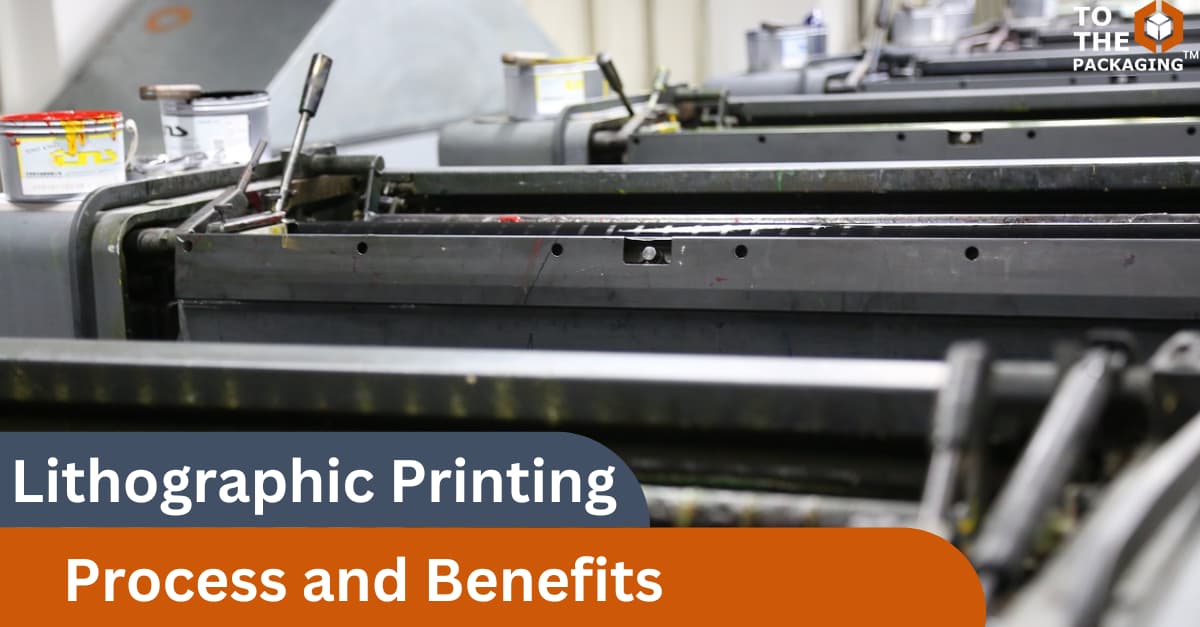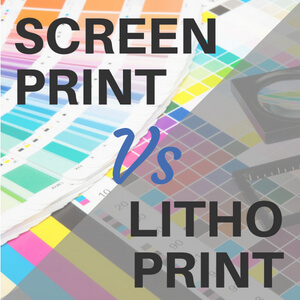What Allows litho printing Shine in the Industry
Wiki Article
A Comprehensive Guide to Comprehending Litho Printing Techniques
The world of litho printing, a strategy originating from the late 18th century, is an interesting mix of background, art, science and innovation. Keep with us as we journey into the fascinating realm of litho printing.The Historic Evolution of Litho Printing
The historic trajectory of litho printing, a pivotal technology in the realm of communication, is a fascinating tale of human ingenuity. The process progressed with the advent of the rotating press, which substantially boosted productivity. Each stage of litho printing's evolution showcases mankind's ruthless pursuit of efficiency and quality in visual communication.Decoding the Science Behind Litho Printing Inks
Relocating ahead in the exploration of litho printing techniques, the emphasis currently shifts to the scientific research behind litho printing inks. The composition of these inks, their drying process, and shade mixing strategies develop the foundation of this complicated art kind. Understanding these components is critical to grasping the craft and achieving the desired print results.Structure of Litho Inks
In lithographic printing, the fundamental function of litho inks can not be overstated. The structure of litho inks varies relying on its purpose, but usually, they include two primary elements - pigments and automobiles. Pigments, the color-providing aspects, are finely ground particles put on hold in the automobile, a fluid that carries the pigment onto the printing surface area. The lorry is an intricate combination of resins, oils, and solvents, which affect the ink's drying out time, attachment, and gloss. Additionally, various ingredients are present to improve certain residential properties like flow, drying, and resistance to ecological effects. Each component plays an essential component in the last print's quality, making the accurate formulation of litho inks an elaborate science.Ink Drying Process
From the make-up of litho inks, attention turns to the interesting procedure of ink drying out. The drying procedure is important, as it impacts the final print's high quality and long life. 2 primary methods are utilized in litho printing: oxidative drying and absorption. Oxidative drying out involves the ink responding with oxygen airborne to create a tough, completely dry film. This approach supplies a long lasting surface, yet can be slower contrasted to absorption. Absorption, on the various other hand, entails the ink leaking into the paper fibers, which is a quicker procedure however can result in less dynamic shades. The choice in between these approaches is dependent upon elements such as print speed requirements, the paper kind used, and the desired finish.Shade Mixing Methods
While the drying procedure plays a vital duty in litho printing, the scientific research of color blending strategies holds equivalent relevance. The scientific research behind litho printing inks likewise takes into account the openness of the ink, which affects just how colors overlay and mix.The Art and Layout Elements in Litho Printing
Litho printing breathes life right into art and layout via its unique components. Litho printing suits a variety of shades, helpful hints enabling artists to produce vibrant and vibrant prints. This combination of accuracy and versatility makes litho printing a recommended option for numerous artists and designers.Modern Applications of Litho Printing Methods
Litho printing methods have actually located comprehensive use in the modern industrial market. Its influence and value remain to expand with the arrival of new developments and technologies in the field. This area will certainly check out these contemporary applications and the transformative role they play in the printing market.
Business Litho Printing Uses
In today's electronic age, one might question regarding the importance of traditional printing approaches. Litho printing remains an important part of the commercial field. High-volume printing tasks, such as the manufacturing of publications, papers, and product packaging, rely upon litho printing for its capability to supply exceptional photo quality and price efficiency. The process, which involves moving an inked image from a plate onto a rubber covering and after that to the printing surface, you can try this out supplies unparalleled consistency. This makes it ideal for work requiring a huge print run. Litho printing additionally gives a wide color spectrum, exceptional to that of electronic printing. This makes it the go-to choice for tasks that require lively, high-quality color reproduction.Innovations in Litho Printing
Pressing the limits of standard methods, modern developments have sustained a host of technologies in litho printing. One popular advancement is digital litho printing, which integrates the virtues of electronic technology with litho's high-quality result. These advancements underscore the enduring importance of litho printing in the modern-day world.Checking out the Process of Litho Printing: Step by Action

Difficulties and Solutions in Contemporary Litho Printing

In spite of the precision and practice that litho printing happily promotes, it is not without its collection of contemporary difficulties. Digital litho printing allows for economical brief runs and easy customization, addressing the concern of variable information. Hence, while there are obstacles, the litho printing industry is proactively adjusting to meet them head-on, guaranteeing its significance in the future.
Verdict
In conclusion, litho printing, with its rich history and scientific complexities, holds a considerable location in the print market. As the overview reveals, it's a synthesis of art and innovation, with contemporary developments guaranteeing its relevance. The market faces difficulties that call for cutting-edge options, with a focus on automation and sustainability. The future of litho printing rests on its capability to adapt to these transforming needs, verifying its long-lasting value in an advancing market.
Report this wiki page